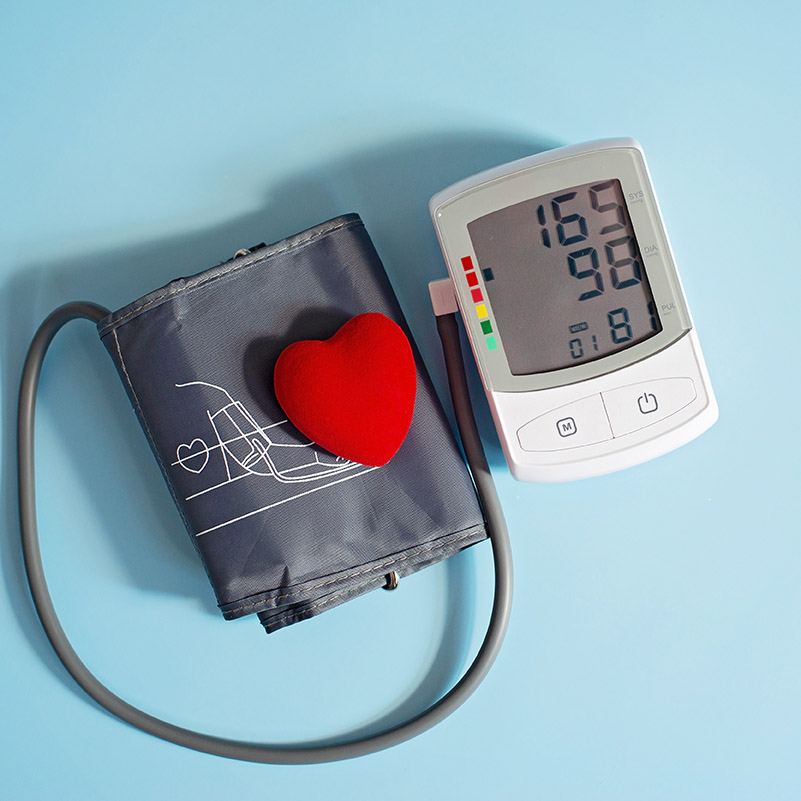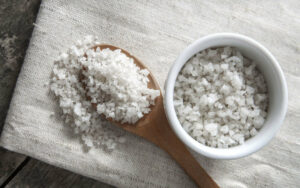Hypertension
What is Hypertension
Hypertension, or elevated blood pressure or High Blood Pressure, is a significant condition affecting people all across the globe. It is a serious medical condition, and if not kept under check may lead to diseases of the heart, brain, kidney and other organs. Hypertension is measured by taking into account how much blood is flowing through the blood vessels and the resistance the blood encounters while the heart pumps the blood. WHO reports that an estimated 1.13 billion people have hypertension. Their findings have further showed that in 2015, an estimated 25% of men and 20% of women all across the world had hypertension, and only a minuscule fraction of these people (20%) have the problem under control. (WHO) This makes hypertension as one of the leading causes of premature death among people worldwide. That’s exactly why hypertension management is crucial because it helps prevent serious health complications such as heart disease, stroke, kidney damage, and vision problems. Properly controlling blood pressure through lifestyle changes and medications reduces the risk of these life-threatening conditions, promoting overall well-being and longevity.
As we all know our blood flows to all the nooks and corners of our bodies, through our blood vessels. And like all fluids it exerts a pressure while circulation. The pressure that blood exerts on the walls of the arteries is called blood pressure, and among people with hypertension this blood pressure becomes high. Much like if you put a finger across the hole of a pipe the pressure of water increases while coming out; the narrowing of arteries lead to an increased blood pressure. And hence the narrower your arteries are, the higher the blood pressure will be. Blood pressure is written as two different numbers. The first number (systolic) represents heart in the contraction mode or when the heart beats, and the second number (diastolic) represents the pressure in the blood vessels when the heart rests between beats. Hypertension is diagnosed if on two different days the systolic pressure is more than 140 mmHG and/or the diastolic pressure is more than 90 mmHG.
Need to consult for blood pressure management?
Quickly Book an Appointment.

Symptoms Associated with Hypertension
Hypertension is one of the silent killers that affects us without our knowledge. Many people do not experience any symptoms at all, and hence often the condition go unnoticed. It may take years, and often decades, before the symptoms becomes apparent. For this reason, it is imperative that we measure our blood pressure regularly. The following symptoms might sometimes occur:
1. Early morning headaches
2. Nosebleeds
3. Irregular heart rhythms
4. Anxiety
5. Vision changes
6. Buzzing in the ears
7. Shortness of breath
Severe hypertension can cause fatigue, nausea, vomiting, confusion, chest pain and muscle tremors. However, these symptoms are pretty common and are associated with other diseases as well, and therefore in order to ascertain hypertension, it is important that you see the best online dietitian to get the best diet for high blood pressure and at the same time get your blood pressure measured. Also, it is important to get.
Types of Hypertension and what causes each of them
There are two distinct types of hypertension:
1. Primary hypertension: Primary hypertension is the one that develops over time with no identifiable causes. Most of the people with hypertension fall into this category. Researches are not entirely sure what causes blood pressure to rise over time, and believe this must be a combination of genetic factors, physical changes that occur over time, and other environmental changes including changes in lifestyle.
2. Secondary hypertension: Secondary hypertension occurs quickly and can become more severe than primary hypertension. It is caused by a different health condition like different kinds of kidney diseases, congenital heart defects, thyroid problems, alcohol abuse, obstructive sleep apnea etc.
If you’re suffering from any of them, please contact a nutritionist for the best high blood pressure diet so that you can keep these symptoms in check.
Complications arising out of Hypertension
As has been mentioned before, hypertension is a silent killer and since there are often no obvious symptoms, hypertension may do a lot of damage even before we know we have it. Hypertension may lead to complications in several of our organs, including causing severe damage to the heart. If blood flows with high pressure for a very long time, it may harden the arteries, which in turn may result in a decreased flow of blood and oxygen to the heart.
This is a deadly combination, facilitated by hypertension, which may lead to:
1. Chest Pain, also known as angina
2. Irregular heart beat- a debilitating condition that may result in immediate death to some.
3. Heart attack- Heart attack occurs when blood supply doesn’t reach the heart and the heart muscle cells die without oxygen. The longer this supply is blocked, the greater the life risk becomes from heart damage.
4. Heart Failure- Heart failure is the failure of heart to pump blood to various organs of our body.
In addition, hypertension may even result in blocking/bursting of arteries that are supposed to take blood and oxygen to the brain. This obstruction may lead to stroke.
Risk Factors associated with Hypertension
Although the exact causes of hypertension is not known, some people are inherently more susceptible than others. Some of the risk factors are modifiable and are generally linked to lifestyle, while other factors are non-modifiable and not much can be done to avoid them.
Major modifiable risk factors for hypertension include:
- Unhealthy Diets: A diet with excessive salt, saturated and trans-fat, and devoid of sufficient fruits and vegetables may lead to hypertension.
- Consumption of tobacco and alcohol: Consumption of alcohol and tobacco are extremely potent factors, which increase the risk of developing hypertension.
- Overweight or obese: An overweight/obese person is more prone to have an elevated blood pressure level.
Non-modifiable factors include:
- Hereditary factors– Having a family history of hypertension puts a person more at risk of developing hypertension.
- Age- A person above 65 with additional susceptibility from hereditary factors are significantly more prone to develop hypertension.
- Co-existing Diseases- Co-existing diseases like diabetes and other kidney diseases increase the probability of having high blood pressure.
So, if you want to live a healthy lifestyle, please get in touch with our dietitian for a holistic hypertension management program.
Food & Wellness | Hypertension Management Programme
As has been mentioned before, hypertension often remains undetected causing harm to the overall physical well-being of a person, and hence needs to be periodically checked and managed.
Under factors that increase the risk of hypertension and other health related complications, several are modifiable and are related to our overall lifestyle. Food N Wellness targets exactly that. We have designed a program to tackle the problem of hypertension through lifestyle modification. The primary objective of this programme is to reduce a person’s elevated blood pressure to normal levels.
A team of expert dietitians work together to meticulously curate individualized diet and exercise plans to neutralise the silent killer named hypertension, and thereby significantly reduce the complications associated with it. In addition, Food n Wellness also provides a maintenance diet plan for an extended period of time, after the immediate problem of high blood pressure is tackled, so that in future the blood pressure levels can be kept under control.

Let's get started with treating your condition...
At Food & Wellness we believe that every individual is different and needs special attention. We adapt our programme to your existing lifestyle and try not to change anything drastically so you can easily transition. Over a period of time we ensure results and help you restore your health.
Hypertention Articles

Celtic Sea Salt: The Mineral-Rich Superfood Your Kitchen Needs
Celtic Sea Salt, harvested using ancient techniques from the coastal regions of France, offers a nutrient-packed alternative to regular salt. With its rich magnesium content and essential minerals, it supports hydration, digestive health, and adrenal function. Learn how to incorporate this powerful superfood into your daily routine for a healthier lifestyle.

Sugar and Heart Disease: Understanding the Connection
In recent years, the connection between sugar consumption and heart disease has become an increasingly important topic of health research. Heart disease remains one of the leading causes of death worldwide, and while many risk factors contribute to its development, sugar intake has emerged as a major culprit. From sugary beverages to processed foods, sugar is prevalent in many of our diets, and it can significantly impact cardiovascular health.

Best Strength-Building Exercises To Lower Blood Pressure
Diabetes is harmful to your health. And so is thyroid or fatty liver. The problem is, such diseases don’t impact your health in one way but all the ways. Another member of these disabling diseases is high blood pressure or hypertension. As per the reports of the Centers for Disease Control and Prevention, almost 1

